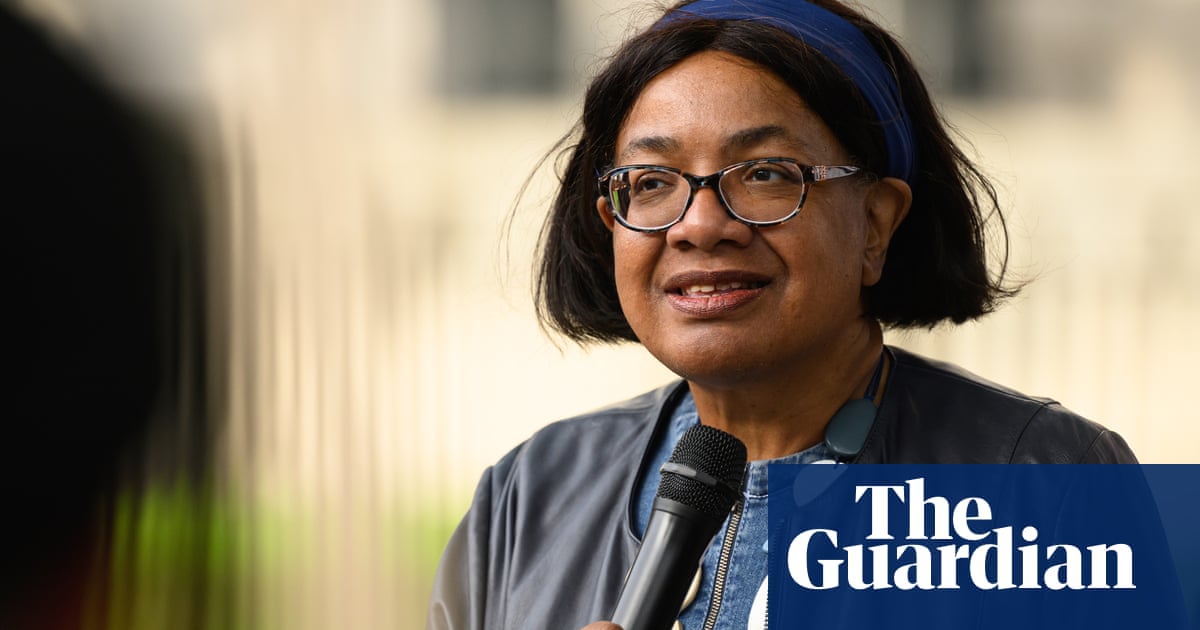
Kim Johnson, the Labour MP for Liverpool Riverside, has accused the Metropolitan police of institutional racism after she and her family were stopped by officers in central London last month.
Johnson, who became Liverpool’s first black MP when she was elected in 2019, said they had arrived in Covent Garden near the end of the England v Scotland Euro 2020 match when they found themselves surrounded by police officers.
She, her son and his friend – both black men in their 30s – and their wives had just stepped out of a taxi to go to a restaurant.
“There were loads of Scottish football supporters, who were involved in antisocial behaviour – being leery – in the same vicinity as us, but these police officers just targeted in on us,” Johnson said.
When asked why they were being stopped and questioned, Johnson said police told her that her son’s friend – who was wearing a distinctive yellow jacket – fitted a description they had been given. According to Johnson, when told she was an MP, the officers “just walked off”.
Forty years after the Liverpool 8 uprisings, also known as the Toxteth riots, she said the heavy handed approach police had towards the black community that led to the unrest remained just as prevalent today.
Johnson said in July 1981, her brother was “one of many young black men that were picked up and accused of doing something that they didn’t do”, and that her son and his friend had been stopped and searched on multiple occasions. “It’s just become the accepted norm – and that’s what’s so frustrating,” she said.
Johnson said the distrust between police and the black community was getting worse in some areas. “There’s the disproportionate numbers of stop and search, and the use of force, including the use of Tasers [stun guns], which is becoming far more prevalent.”
Her comments echoed those made by Dawn Butler, another black Labour MP, who was stopped by the police last summer.
“It is totally unacceptable that you have somebody like Cressida Dick, who does not call it out for what it is, which is institutional racism – that people are being racially profiled every single day,” Johnson added.
On the Met commissioner’s comments that the phrase was no longer helpful, Johnson added: “I think that just plays into the whole Tory narrative at the moment – the stoking up of these culture wars, left right and centre.”
Johnson pointed to high profile stories such as those of the athletes stopped and searched last summer with their three-month-old baby, and of Robyn Williams, one of the Met’s most senior black female police officers who won her job back last month after a tribunal found she was sacked unfairly.
“I know from speaking to black police officers who have served their time, who are extremely critical of how black police officers are treated in the force, being passed for promotion, being treated differently, high number of disciplinaries, etc.
“There is still an issue in terms of how black police officers are treated, and how that is then replicated within our communities,” she said.
The Met said the force was unable to comment on specific incidents.
“On Friday, 18 June, the Met had a large number of officers in central London to provide a visible presence as part of the policing operation for the Euros 2020,” a statement read.
“These officers ensured the safety of those enjoying the football, or a night out in the West End, and responded to any reports of alleged criminality.
“While we are unable to comment on this specific incident – without the full circumstances – or what led to [the] stop, we would expect officers to pursue all lines of inquiry, including speaking to individuals who match the description of those allegedly involved, when responding to an allegation of crime.”












